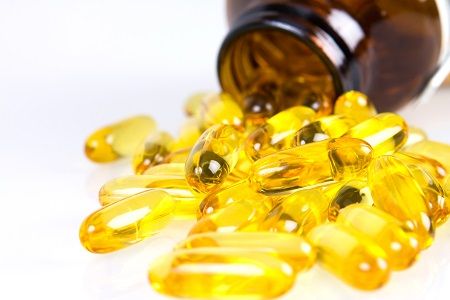Vitamin D Supplements Improve Bone Turnover Markers in Postmenopausal Women
Since vitamin D plays a key role in bone mineralization, and older people tend to need more bone support, researchers looked at how providing supplementation impacted postmenopausal women.

Vitamin D deficiency is far from being an uncommon problem. Since it plays a key role in bone mineralization, and older people tend to need more bone support, researchers looked at how providing vitamin D supplementation impacted postmenopausal women.
Bone turnover markers can relay information on fracture risks and progress of osteoporosis treatment. If vitamin D is able to improve bone health, the worldwide deficiency issue would become that much more important. Presented at The North American Menopause Society 27th Annual Meeting (NAMS 2016) in Orlando, Florida, a team from the Gynecology and Obstetrics at the Botucatu Medical School-Sao Paulo State University assessed what would happen if postmenopausal women were introduced to supplementation.
A total of 160 Brazilian postmenopausal women with vitamin D deficiency were included in the cohort. The women were ages 50 to 65, had amenorrhea, and had normal bone mineral density (BMD) — based on lumbar spine and femoral neck BMD evaluations. The average woman had been out of menopause for 12 years. Half of them were randomly assigned to receive oral vitamin D3 supplementation 1,000 IU per day and the other half received a placebo. All of the participants had at least 92% adherence.
- MD Magazine is on Facebook, Twitter, Instagram, and LinkedIn!
Notably, none of the participants had taken pharmacological doses of vitamin D — or other medications that could impact bone metabolism such as estrogen, testosterone, bisphosphonate, etc. – before the start of the study.
After 10 months, the researchers reevaluated the women for serum levels of total calcium, parathormone, alkaline phosphatase, and calciuria through urine samples. Those in the vitamin D supplement group had an average 25(OH)D concentration jump from 15 ng/ml to 27.5 ng/ml — a 45.4% increase. Women in the placebo group, however, went from 16.9 ng/ml to 6.0 ng/ml – a 18.5% decrease.
“In comparison of bone turnover markers, there was significant reduction in s-CTX values (-24.2%) and P1NP (-13.4%) in [the vitamin D supplement group],” the report said. Those in the placebo group didn’t exhibit any significant bone turnover marker changes.
When it came to serum levels, the only significant finding was a 21.3% decrease in parathormone in the vitamin D supplementation group.
“In postmenopausal women with vitamin D deficiency, the isolated supplementation of 1,000 IU of vitamin D3 for 10 months may be associated with a reduction in the bone turnover markers,” the team concluded.
Also on MD Magazine >>> More News from NAMS 2016 in Orlando